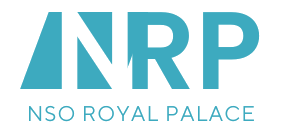Geopolital Setup
The Nso Kingdom, one of the most historically significant traditional polities in Cameroon, operates within a unique geopolitical framework that blends traditional leadership with modern administrative systems.
Geopolitical Setup of the Nso Kingdom
The Nso Kingdom, one of the most historically significant traditional polities in Cameroon, operates within a unique geopolitical framework that blends traditional leadership with modern administrative systems. At the heart of this system is the Fon of Nso, the spiritual and political leader, supported by traditional councils and secret societies. This page explores how the Nso Kingdom is structured politically, how authority is distributed, and how it functions within the broader administrative setup of the Republic of Cameroon.

The Nso Kingdom lies in the Bui Division of the Northwest Region of Cameroon. Its heart is the town of Kumbo, situated on a plateau approximately 2,000 meters above sea level. The region is bordered by other Grassfields kingdoms, including Ndop to the west and Nkambe to the east.
The kingdom is divided into several sub-chiefdoms and villages. Each is governed by a local chief or quarter head (often appointed by or approved by the palace), who manages local disputes, cultural events, and liaises with the palace. Key areas include:
The Nso Kingdom exists within the administrative boundaries of the Northwest Region of Cameroon, specifically within Bui Division. While the traditional authority is not part of the formal government, it is recognized by the state and plays an essential role in conflict resolution, community development, and cultural preservation.
The Fon and his council often work alongside local mayors, divisional officers (DOs), and sub-divisional officers (SDOs) to coordinate development projects and maintain peace.
The Fon is advised and supported by several councils, including:
The Nso Kingdom, through the Fon, maintains strong cultural and political relationships with:
With modernization and national decentralization efforts, the Nso Kingdom faces new geopolitical realities, including:
Despite challenges, the palace continues to play a vital role in social stability and community leadership.
As a company that is 100 percent employee-owned, we collaborate and innovate to help our partners thrive. Our culture of ownership drives your success.

